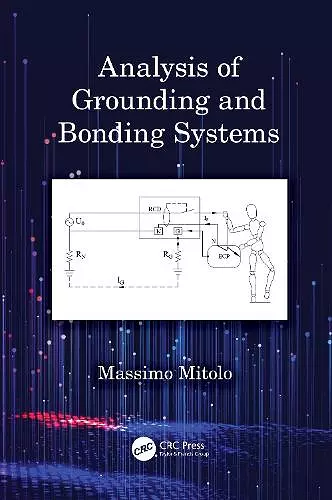Analysis of Grounding and Bonding Systems
Format:Hardback
Publisher:Taylor & Francis Ltd
Published:8th Jun '20
Currently unavailable, and unfortunately no date known when it will be back
This hardback is available in another edition too:
- Paperback£59.99(9780367498252)

Learn the theory behind grounding systems and bonding equipotential connections from a worldwide expert. Through mathematical analysis, comprehensive explanations, and detailed figures, Analysis of Grounding and Bonding Systems explains the theory and the reasons behind basic ground-electrodes (i.e., the sphere, the ground rod, and the horizontal ground wire), and more complex grounding systems (i.e., ground-grids), buried in uniform and non-uniform soils.
Through calculations and explanatory diagrams, this comprehensive guide provides code-complying solutions for the safety against electric shock provided by equipotential bonding connections between exposed-conductive-parts, such as equipment enclosures, and metalwork. Details on the calculation of step and touch voltages in different types of system grounding (i.e., TT, TN, and IT) are provided, also with the aid of solved problems.
Readers will learn how to minimize hazardous interactions between grounding systems, cathodically protected pipelines, and heat networks. The analysis of the effectiveness of bonding systems against electric shock in the case of contact with electric vehicles during charge in the event of ground-faults, which is an upcoming issue challenging our safety, is included.
This book can add to your understanding of the physics behind grounding and bonding of electrical systems which can help to explain the methods and reasons behind national standards. Engineers, especially power engineers who design power distribution systems will find this book to be especially useful for helping to understand the reasons behind the choices made in the national electrical standards. It provides an outstanding technical detail that clearly illustrates the physics and operation of grounding and bonding systems in general and the reader can apply their new knowledge to better understand the standards. While the author does not reference specific electrical codes, he does refer to reasons why certain things are done the way they are in the code to help the reader better understand the standards.
- IEEE Electrical Insulation magazine, March/April 2021
ISBN: 9780367341251
Dimensions: unknown
Weight: 371g
154 pages